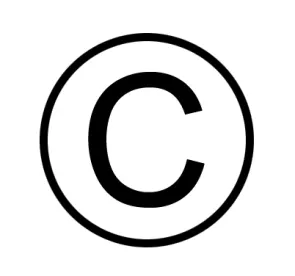The US Copyright Office has promulgated new regulations that will take effect on December 1, 2016 regarding the “safe harbor” provision of the Digital Millennium Copyright Act (DMCA), which will affect both internet service providers and others whose websites allow third parties to post content, such as chat rooms or discussion forums.[1]
The regulations implement new electronic filing requirements for designating DMCA agents, as well as procedures requiring renewals at least every three years. Significantly, all persons who wish to institute or maintain the protection against copyright infringement liability afforded by the “DMCA safe harbor” must timely comply with the new electronic filing regulations—even if they have previously made their required hard copy filings with the Copyright Office—or risk losing their safe harbor protections.
Action Items
As detailed further below, service providers and website owners that wish to initiate or preserve DMCA safe harbor protections should take action in light of the new regulations:
-
Promptly after December 1, 2016, create a Copyright Office account, appoint the required representative(s), and designate a DMCA agent—all online. Service providers that previously designated DMCA agents must comply with the new regulations by December 31, 2017.
-
Institute a docketing or reminder protocol to ensure that the DMCA agent designation is updated or renewed at least every three years.
Background
The DMCA, enacted in 1998, contains a “safe harbor” provision that shields service providers and website owners from financial liability for copyright infringement based on third-party content posted to websites they control or operate.[2] If service providers comply with certain eligibility requirements, including designating an agent to receive notifications of claimed copyright infringement and taking down allegedly infringing content upon notice, then the service providers are not liable for infringement damages. This notice and take-down policy has been widely regarded by both service providers and copyright owners as a generally effective mechanism to prevent copyright infringement liability for unauthorized content posted on websites and for removal of allegedly infringing content relatively quickly.
The DMCA requires the Copyright Office to maintain a “current directory” of service providers’ designated agents to receive notifications from copyright owners who allege that content on the providers’ website(s) infringes upon the copyright owners’ rights. The current regulation requires each service provider to make a one-time paper filing (now routinely submitted by email) with the Copyright Office that lists the current name, address, telephone number, and email address for its designated agent. For the DMCA safe harbor to apply, the service provider must maintain the same contact information that it files with the Copyright Office on both its website and in the Copyright Office’s directory. If a service provider fails to maintain current and accurate information in both places, it risks losing the protections of the safe harbor.
Despite the strong incentive for service providers to maintain current and accurate information, the one-time filing requirement resulted in much of the information in the Copyright Office’s directory falling out of date. Moreover, a Copyright Office study of the accuracy of its directory revealed that many service providers may have inadvertently lost the protections of the DMCA safe harbor by either (i) failing to maintain matching contact information in the directory and the service providers’ websites or (ii) not providing any contact information on those websites.
To improve both the overall accuracy and efficiency of the directory, in October 2016 the Copyright Office promulgated the new regulations, which require electronic filing and periodic updating of the designated agent information.
New Rules for Designation of DMCA Agents
The new electronic registration system will be launched on the same day that the regulation becomes effective—December 1, 2016. Registration, amendment, resubmission, and renewal require a (significantly reduced) fee of $6.
Beginning December 1, 2016, the Copyright Office will no longer accept paper designations. Service providers that have already designated an agent are required to refile electronically by December 31, 2017 to maintain their DMCA safe harbor protection. The new rules also require each service provider to renew, resubmit, or amend each designation no later than three years after each is registered with the Copyright Office. Amendment prior to the three-year renewal date resets the clock on the renewal for an additional three years. If a service provider fails to timely renew its designated agent information, it may reactivate its account, but the Copyright Office’s directory will show a gap where no active designated agent was listed. Service providers’ historical designated agent information from both the new electronic system and past paper records will be available through the new system.
Each service provider must create an account through which it will submit its DMCA agent designation, including amendment and renewal information. Related or affiliated service providers that are separate legal entities are considered separate service providers, and each must have its own designations. However, all of such affiliates’ designations may be centrally managed and maintained through a single account.
The designated agent may be an individual, a specific position or role (e.g., General Counsel or Copyright Manager), a department within the service provider’s organization, or a third-party entity. To designate an agent or amend or resubmit a designation, the user must attest to having authority to act on the service provider’s behalf and to the accuracy and completeness of the information provided.
Create an Account and Appoint a Representative
-
To create a registration account, a service provider must provide the following information for both a primary and secondary representative for purposes of communications with the Copyright Office:
-
Full name
-
Position or title
-
Organization name
-
Physical mail address
-
Telephone number
-
Email address
-
-
Primary and secondary representatives will receive automated confirmation emails and may be contacted by the Copyright Office with questions regarding the designation or registration account.
-
Primary and secondary representatives’ contact information will not be made public by the Copyright Office.
-
Primary and secondary representatives are not required to be listed on the service provider’s website.
-
Primary and secondary representatives may be third parties (such as a parent company or a law firm), and a single registrant may designate agents on behalf of multiple service providers.
-
Payments will be made through pay.gov operated by the US Department of the Treasury with a credit card, debit card, or bank account.
Information Required to Designate an Agent
-
Service provider
-
Full legal name
-
Physical street address (not a post office box)
-
Telephone number (will not be made public)
-
Email address (will not be made public)
-
Any alternate name used by the service provider (not its affiliated or related entities), including any name that the public would be likely to search (e.g., a trade name or “Acme.com”)
-
-
Designated Agent
-
Full name
-
Organization
-
Physical mailing address or post office box (new option)
-
Telephone number
-
Email address
-
For assistance and additional information, the Copyright Office has created a helpful website page that includes several video tutorials.
[1] 37 C.F.R. § 201.
[2] 17 U.S.C. § 512.




 />i
/>i
